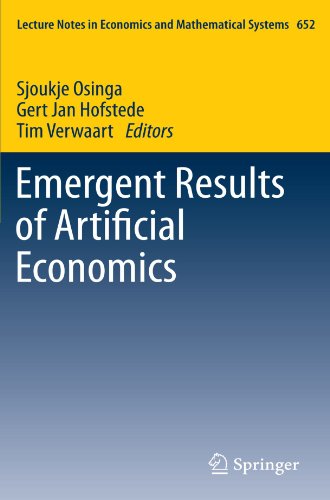

Most ebook files are in PDF format, so you can easily read them using various software such as Foxit Reader or directly on the Google Chrome browser.
Some ebook files are released by publishers in other formats such as .awz, .mobi, .epub, .fb2, etc. You may need to install specific software to read these formats on mobile/PC, such as Calibre.
Please read the tutorial at this link: https://ebookbell.com/faq
We offer FREE conversion to the popular formats you request; however, this may take some time. Therefore, right after payment, please email us, and we will try to provide the service as quickly as possible.
For some exceptional file formats or broken links (if any), please refrain from opening any disputes. Instead, email us first, and we will try to assist within a maximum of 6 hours.
EbookBell Team

0.0
0 reviewsArtificial economics is a computational approach that aims to explain economic systems by modeling them as societies of intelligent software agents. The individual agents make autonomous decisions, but their actual behaviors are constrained by available resources, other individuals' behaviors, and institutions. Intelligent software agents have communicative skills that enable simulation of negotiation, trade, reputation, and other forms of knowledge transfer that are at the basis of economic life. Incorporated learning mechanisms may adapt the agents' behaviors. In artificial economics, all system behavior is generated from the individual agents' simulated decisions; no system level laws are a priori imposed. For instance, price convergence and market clearing may emerge, but not necessarily. Thus, artificial economics facilitates the study of the mechanisms that make the economy function. This book presents a selection of peer-reviewed papers addressing recent developments in this field between economics and computer science.